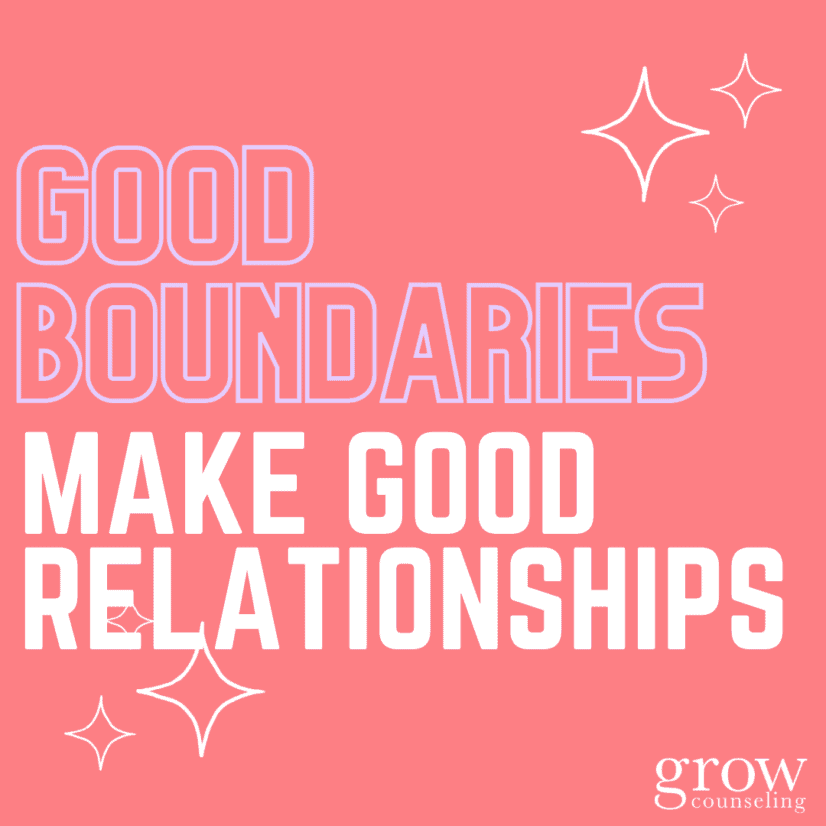There’s an old saying: “Good fences make good neighbors.” While it may not literally be true – I have had wonderful neighbors with nary a fence to be found – the point is that having clearly defined boundaries when it comes to relationships can be incredibly beneficial.
A good boundary is one that allows you to show up in the relationship (friendship, romantic relationship, family of origin, etc) without feeling resentful toward the other person.
Good boundaries mean that you can enjoy the other person’s companionship without being focused on how they’ve hurt you or let you down. Good boundaries are incredibly freeing when employed correctly, because they allow you to respect your own needs and others’ autonomy at the same time.
When our boundaries are repeatedly breached, it can lead to a buildup of frustration and resentment, which can be lethal to a relationship. However, it isn’t just up to the other person to respect your boundaries. You are responsible for setting and enforcing your own boundaries.
If you have people in your life who easily respect your boundaries, this is an easier job. However, if someone does not seem capable or willing to respect your boundary, it is up to you to find a way to enforce it if you want to be able to stay in the relationship. You cannot force another person to change their actions or thoughts – you can ask them to, but at the end of the day it is up to them whether or not they are able or willing to make that change.
Clear communication is key here – give the other person a chance to be respectful of your boundaries after you’ve clearly laid them out.
No one can read your mind, so if you are setting boundaries but not letting the other person know, then they are bound to breach them at one point or another. You also need to be willing to follow through – don’t set a boundary if you’re really not willing to enforce it, as it sends a very confusing and mixed message to the other person.
This means that you need to spend some time thinking about what is really important to you, and what you are willing to let go of. If you decide something isn’t worth setting a boundary about, then it becomes your job to find a way to really let it go. This is also known as choosing your battles- pick the things to stand your ground on that directly impact your relationship or how you feel about the other person.
Check back for part 2 for a discussion and examples of how to set loving, effective boundaries!
Written by: Molly Halbrooks

